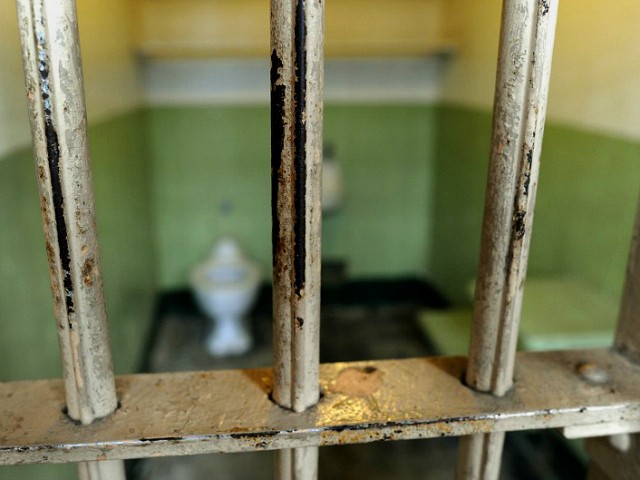A court in far eastern Chukotka, Russia, sentenced two Cuban nationals to a provisional sentence of one year in prison on Wednesday for traveling to Russia with the intent of crossing the Bering Strait into Alaska, hoping to establish themselves in the United States.
A growing number of Cubans seeking to enter the United States are using alternative routes instead of the traditional sea voyage from the island to Key West — 90 miles away — since former President Barack Obama ended the policy known as “wet foot/dry foot” in 2017.
The former policy allowed Cubans who reached American land to stay in the country legally and receive immigration documentation; Cuban refugees now face immediate deportation even if they reach Florida.
Russia’s state-owned Sputnik news outlet reported on Wednesday that two unnamed Cuban nationals who were arrested in 2016 trying to enter Alaska had received a sentence of one year in prison. The sentence is a suspended one and the court would re-evaluate whether to keep them in prison after six months as their crime did not present a threat to Russians or involve violence.
The two men reportedly asked a Russian national whether it would be possible for them to shuttle from the Russian mainland to Little Diomede Island, a small Alaskan territory in the middle of the Bering Strait. The men allegedly offered 1,000 euros and $800 separately for the trip.
The narrowest distance between Russia and the United States in the Bering Strait is 51 miles, though the distance from Russia to Little Diomede Island is less than 30 miles, about a third of the distance from Cuba to Florida.
The individual whom the men contacted to help them cross into Alaska reportedly agreed to help them and informed Russian authorities, who arrested them before they could leave the country.
The communist Cuban state perceives nationals who attempt to leave the country permanently to move to the United States as “traitors” and, for the most part, bans them from re-entry, so it is unlikely that the men, in this case, will be allowed to return to their native country.
Despite this threat, thousands of Cubans attempt to travel to the United States annually, with numbers decreasingly slightly, continuing to try to enter the United States from the Caribbean or Central America. Yet a growing number are taking advantage of visa-free travel to Russia to attempt an escape.
According to the U.S.-based Martí Noticias outlet, Russia had processed 50 Cuban nationals trying to enter Alaska between the beginning of 2017 and May of that year. Those numbers continue to grow despite the extreme dangers of traveling in Chukotka, where temperatures in winter can reach −31 °F and do not surpass 60 ºF in the peak of summer.
Russia’s Novosti news outlet reported in mid-2017 that the interest in escaping Cuba to Russia has created a small market of Cuban expatriates promising those who come to Moscow “all-inclusive” travel out of Moscow, providing shelter for travel nights and food during the voyage either to Alaska or to Europe, particularly Spain.
Spain’s ABC newspaper reported in 2017 that the Moscow-Spain route had grown increasingly popular thanks to President Obama’s reversal of the “wet foot/dry foot” policy, stranding hundreds of Cubans in the halfway point of Serbia on their way to Spain, joining the large influx of Syrian and African migrants flooding Europe’s immigration systems.
Cubans who have attempted to make a life in Russia often complain of extreme xenophobia, a poor economy, and little opportunity for people of color.
“I don’t want to speak ill of any country, but it’s great – there is a lot of racism [in Russia],” Rolando Fernández, a Cuban refugee who ultimately fled with his Russian wife and one-year-old child to the United States, told Miami’s AmericaTeVe in 2014. “I was very discriminated against in Russia, I was attacked twice by nationalists.”
Another Cuban national stranded in Moscow, Esteban Torres, told Martí in August that, despite his engineering background, he was stuck in a homeless shelter for over a year.
“It is very uncomfortable. Yes, I try to help, I go get food, but I am an adult man, I have a good education, I would like to find work and make money without breaking the law, but I can’t,” Torres said.
The United States respected the status of Cuban refugees and acknowledged the horrors of the Castro regime completely before December 2014. Then-President Obama announced in 2014 that he would begin to establish diplomatic relations with the Castro regime without demanding an end to its human rights abuses or severing ties with some of America’s most prominent enemy states, like North Korea and Iran.
In 2016, Obama visited Havana, enjoying a baseball game alongside dictator Raúl Castro and receiving thousands of dollars in gifts from the Castro regime, according to former national security aide and novelist Ben Rhodes.
The Cuban regime intensified its repression of dissenting voices following Obama’s policy change, prompting a growing number of Cubans to build makeshift vessels and attempt the dangerous voyage across the Caribbean.
To prevent being returned to Cuba, where they would be tried as traitors, refugees began to engage in self-harm, including the drinking of bleach, to ensure that they would have to be taken to a U.S. hospital on the mainland. This tactic stopped working with the repeal of “wet food/dry foot,” which also stranded Cubans throughout Latin America who had begun to travel towards the United States with the knowledge that American laws would welcome them.
Some Cuban refugees blamed the Cuban exile community’s conservative leanings for the policy change.
“Obama, because he is leaving, suddenly takes up the idea of repealing a law that has been enforced for many years and has favored many Cubans,” Jose Enrique Manresa, a 47-year-old Cuban who was stranded in Mexico following the “wet foot/dry foot” repeal, said following the law change. “I think he got angry with the Cubans [for voting for President Donald Trump].”
